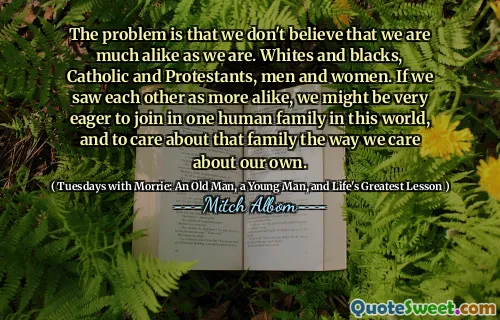
A Jewish man with his parents alive is half the time a helpless infant!
This quote from Philip Roth's '(Portnoy's Complaint)' captures a poignant aspect of familial relationships, particularly the intense bond between a Jewish man and his parents. The statement suggests that the presence and influence of parents can evoke feelings of dependency, vulnerability, and nostalgia, reminiscent of childhood. Families often serve as anchors, grounding individuals but also exposing their sensitivities and fears. The phrase 'helpless infant' emphasizes the cyclical nature of dependence—no matter how grown or independent someone appears outwardly, the emotional and psychological bonds to their origins and family can often evoke a sense of helplessness or longing for security akin to childhood. This sentiment resonates deeply across many cultures but has particular resonance within Jewish traditions, where family ties and respect for parents are central tenets. The quote highlights how the continuation of parental presence in adult life can evoke a dynamic where one is never quite fully autonomous; a latent vulnerability persists. Roth's candidness is a commentary on the universal human tension between independence and the intrinsic need for connection and reassurance from one's roots. It offers a reflection on how maturity does not necessarily mean emotional self-sufficiency but often entails navigating the complex landscape of familial influence and personal identity. This observation invites us to consider how our relationships with our elders shape our sense of self, sometimes granting us strength but other times revealing our fragility, regardless of age.






